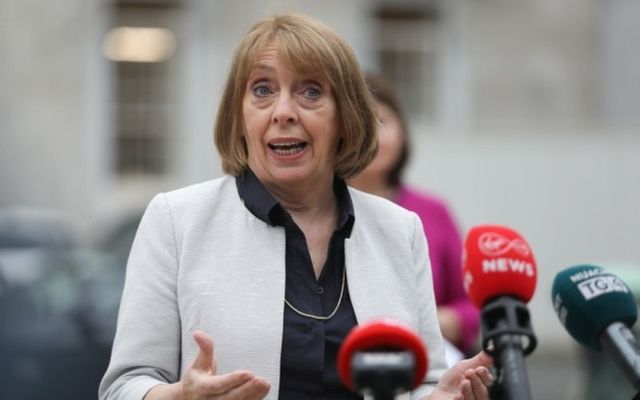The European Court of Human Rights has dismissed a legal challenge to the reference to God in the Irish presidential oath.
Social Democrats co-leader Róisín Shortall and four co-litigants brought the case before the court, arguing that "in the presence of Almighty God" should be removed from the presidential oath set out in the Irish Constitution as it is in violation of the European Convention on Human Rights.
The litigants argued that they would have to take an oath "to which they had a conscientious objection" if they were ever elected President of Ireland or appointed to the Council of State, which advises the President. Irish judges are also expected to take a similar oath.
The Irish Government had argued that the case should be thrown out because the co-litigants were not victimized by the reference to God in the presidential oath.
Read more
Judges in the European Court of Human Rights agreed, stating that the litigants had failed to provide reasonable evidence that they were at risk of being affected by the requirements to swear an oath to God.
"The decision is final," the seven-judge chamber of the court said on Thursday in Strasbourg.
"The court, in declaring the applications inadmissible, found that the applicants had failed to provide reasonable and convincing evidence that they were at risk of being directly affected by these requirements and so could not claim to be victims of a violation of the Convention."
The judges noted that the court had previously accepted that litigants might be potential victims in certain circumstances but said that they had to produce "reasonable and convincing" evidence that a personal violation of their human rights would occur.
"Mere suspicion or conjecture was insufficient," the court said.
Shortall took the case along with Sinn Féin TD John Brady, Senator David Norris, former Barnardo's chief Fergus Finlay, and Professor David McConnell from Trinity College.
The court noted that none of the five litigants had any realistic prospects of successfully seeking office.
"Mr. McConnell and Mr. Norris had expressed no interest in seeking the Presidency in the future. The remaining applicants had expressed their interest in very general terms, but suggested that it would be pointless for them to seek election as they could not take up the office if elected," the court said in its ruling.
The court also said that the litigants had failed to show that their appointment to the Council of State was a realistic possibility.
The five litigants claimed that the presence of a religious oath excludes "conscientious non-Christians and non-believers, and those who do not wish to violate their consciences, from some of the most senior public offices in the country, unless they are willing to publicly declare and subscribe a formula which goes against their conscience".
The UN Human Rights Committee previously called for changes to the oaths, while a 1998 Oireachtas committee recommended a choice between a religious and non-religious declaration.
President of Ireland Michael D. Higgins said in an interview earlier this year that he believes that the religious oath should be removed and replaced with an affirmation.
However, lawyers representing the Irish Government told the European Court of Human Rights that the declarations were "necessary in a democratic society".
They said that the declarations helped to uphold "public safety" in addition to protecting "public order, health, or morals".
The Government also argued that the litigants could not be regarded as "victims" of the alleged rights violation.
The litigants replied that they were victims and said that the Government's claims that the oaths were necessary in a democratic society could not be taken seriously.
Shortall has since said on Twitter that she would be bringing forward a bill proposing the removal of religious oaths from the Constitution.
Why is the Govt so staunchly defending mandatory religious oaths?
I will be bringing forward a Bill proposing a referendum to remove the requirement to make religious oaths from the Constitution. https://t.co/BmSvuIhoOU
— Róisín Shortall (@RoisinShortall) November 18, 2021




Comments